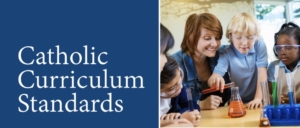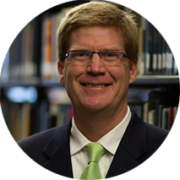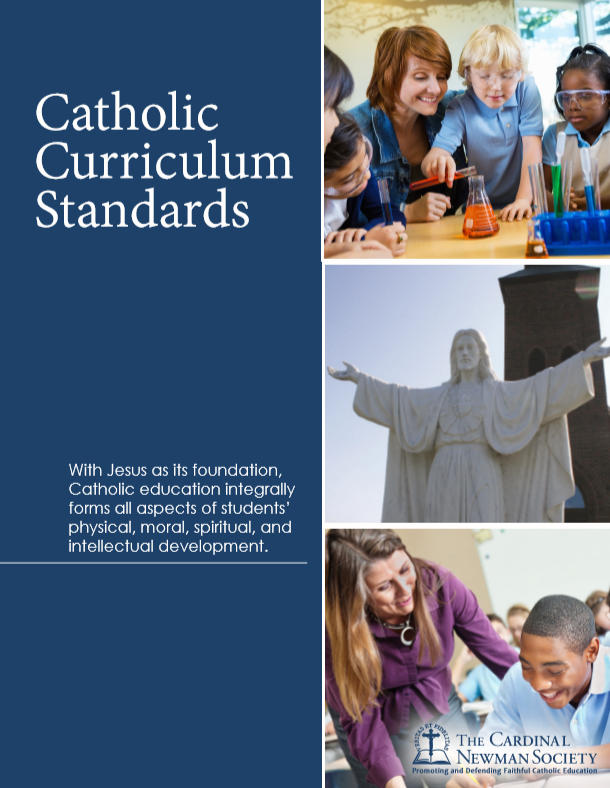The United States Conference of Catholic Bishops (USCCB) Committee on Catholic Education released a document in 2014 to guide Catholic schools in their approach to educational standards. It had been longstanding practice in Catholic education to rely heavily upon state standards for public schools, but this became increasingly controversial when many states shifted to the Common Core State Standards. The Committee advised:
Catholic schools must consider standards that support the mission and purpose of the school as a Catholic institution. Attempts to compartmentalize the religious and the secular in Catholic schools reflect a relativistic perspective by suggesting that faith is merely a private matter and does not have a significant bearing on how reality as a whole should be understood.
Such attempts are at odds with the integral approach to education that is a hallmark of Catholic schools. Standards that support an appropriate integration should be encouraged. Such standards are critical to Catholic education. The Church and the Catholic intellectual tradition it inspired have thought deeply and explicitly about these things for centuries; the challenge is to place them into a contemporary K-12 standards format without losing these deep spiritual and philosophical insights. Standards reflecting the Catholic intellectual tradition might then form the foundation of a school’s measures of success, or they might complement a school’s carefully selected academic standards that are already in use.
The scope and nature of this project entails research and inquiry into two areas: “What does the Church expect of its schools?” and “What sort of academic standards in each discipline might guide a school’s curriculum toward this end?” The Cardinal Newman Society undertook the first inquiry with its Principles of Catholic Identity in Education project. The second inquiry resulted in these Catholic Curriculum Standards. Research from the first inquiry resulted in the synthesis of key Church teachings into five principles of Catholic identity. They are:
-
- Inspired by Divine Mission,
- Models Christian Communion and Identity,
- Encounters Christ in Prayer, Scripture, and Sacrament,
- Integrally Forms the Human Person, and
- Imparts a Christian View for Humanity.
Principles 1, 4, and 5 most directly guide the scope and of the Catholic Curriculum Standards.
The Catholic Curriculum Standards take into account guidance from Church documents which emphasize that Catholic education:
-
- Involves the integral formation of the whole person, body, mind, and spirit, in light of his or her ultimate end and the good of society.
- Seeks to know and understand objective reality, including transcendent Truth, which is knowable by reason and faith and finds its origin, unity, and end in God.
- Promotes human virtues and the dignity of the human person, as created in the image and likeness of God and modeled on the person of Jesus Christ.
- Encourages a synthesis of faith, life, and culture.
- Develops a Catholic worldview and enables a deeper incorporation of the student into the heart of the Catholic Church.
This framework guides the second part of the inquiry, “What sort of academic standards might serve to guide a school’s curriculum toward this end?”
The initial development of the standards was influenced by multiple sources, including Church documents, scholarly works related to Catholic education and the Catholic intellectual tradition, and books articulating the nature of liberal arts and classical education. The standards also reflect the educational philosophies of several faithful Catholic colleges in The Newman Guide to Choosing a Catholic College.
A series of meetings, focus groups, and contacts with academic subject area experts helped further refine the scope and nature of each discipline’s Catholic tradition and the complete standards; these experts represent Aquinas College (Nashville), Ave Maria University, Catholic University of America, Christendom College, Franciscan University of Steubenville, Thomas Aquinas College, Thomas More College of Liberal Arts, University of St. Thomas (Houston), and others. Cardinal Newman Society authors then structured the standards into conventional standards-based language and format. Further input and review was provided by national standards expert, Dr. Sandra Stotsky, who oversaw the writing of the highly regarded Massachusetts academic standards and was a final validation team member by the developers of the Common Core before resigning in disagreement. Finally, the standards were reviewed by superintendents, teachers, and curriculum experts in three Catholic dioceses for clarity, applicability, and structure.
Each academic discipline’s standards are broadly grouped into two sets focusing on grades K-6 and 7-12, with general, intellectual, and dispositional standards for each academic discipline. The general standards are tied to the five critical elements listed above. Intellectual standards are cognitive standards and are primarily content and performance based. The dispositional standards involve the formation of character, beliefs, attitudes, values, interpersonal skills. Each standard is given a unique identifier for ease of location within the document and identification in teacher lesson plans. The following are examples of standards for English language arts, math, science, and history:






